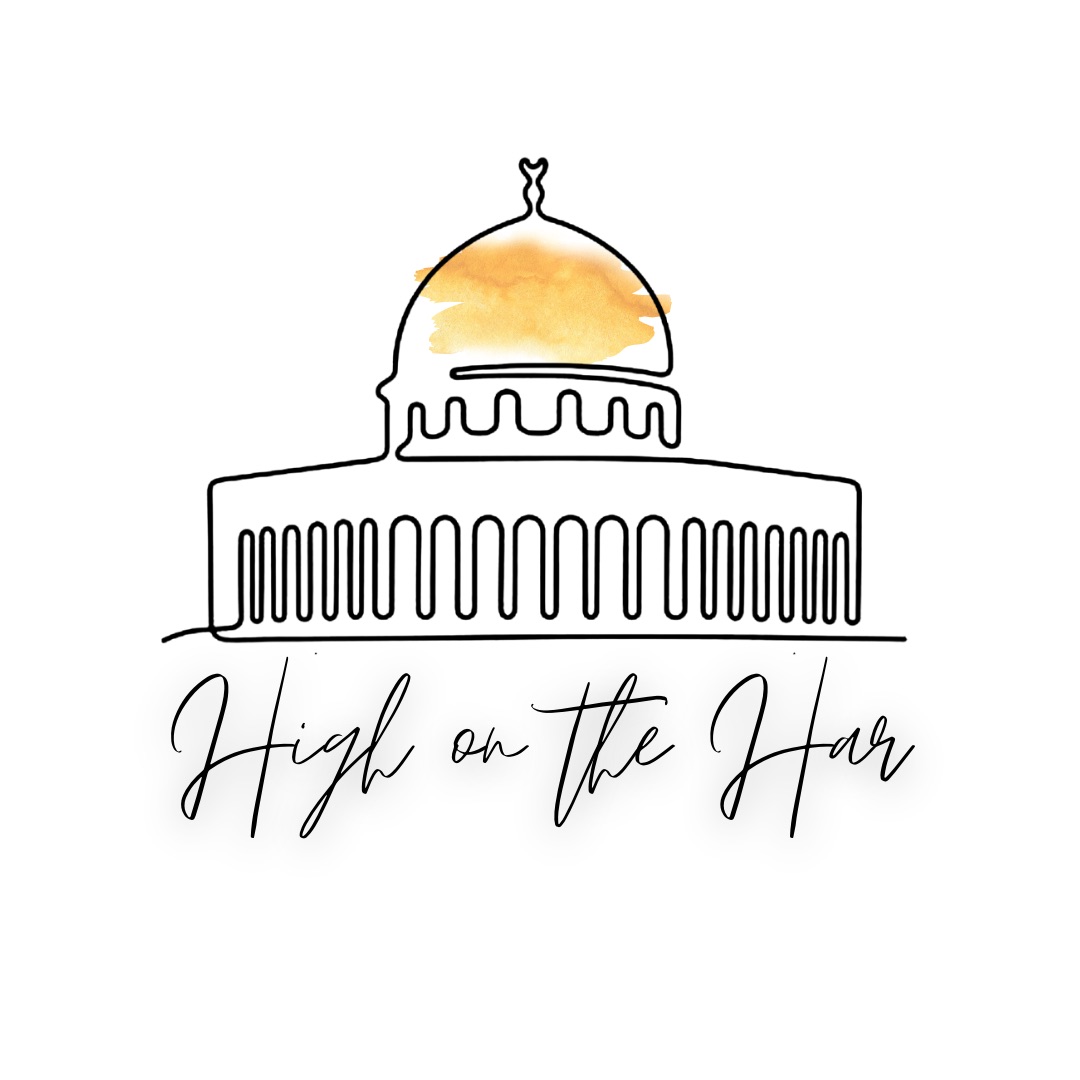High On The Har Featured by Israel365 News
- High On The Har

- Apr 19, 2023
- 4 min read
Updated: Apr 21, 2023
While Ramdan, the month of fasting is, according to Islam, a period of intensified prayer and devotion, in Israel, it is usually characterized by increased Arab violence, most particularly focused on the Temple Mount. This year was no exception, and in retrospect, we are left wondering who controls Judaism’s holiest site.
This month, Jerusalem was the focus of three major religions as Ramadan and Easter coincided with Passover. Despite drastically reduced hours of visitation and other restrictions, 3,430 Jews ascended the Temple Mount during the four intermediary days of the holiday, bringing the total number of Jews who visited the site since Rosh Hashanah in September to 28,463.
Over one million Muslims visited the Temple Mount throughout the entire month of Ramadan. Arab visitation reached a quarter of a million last Friday but peaked on Monday night on the holiday of Laylat Al Qadr, also known as the Night of Destiny when approximately 280,000 Muslims in total entered the Temple Mount compound for prayers, the most at a single time since 1986.
But rather than focus on devotion, Ramadan became a period of intensified tensions focused on the Temple Mount. After Israel and Jordan agreed to allow Muslims to stay overnight in the Al-Aqsa Mosque on April 11 to observe itikaf, a Muslim practice involving multi-day prayer, Hamas took the opportunity and called on Arabs to riot at the site. Several hundred Palestinians barricaded themselves inside the mosque with explosive devices, rocks, and fireworks in order to target Israeli civilians and security forces. Police responded by entering the mosque and employing crowd control measures that included stun grenades and tear gas, ultimately arresting 350 Palestinian men.
In response to the violence at al-Aqsa, Arab citizens of Israel clashed with police in Umm al-Fahm, Sakhnin, and Nazareth. Israeli police deployed 2,300 officers to the Old City of Jerusalem.
In coordination with the riots on the Temple Mount, rockets were fired at Israel from Gaza, Lebanon, and Syria. Hamas claimed credit for the rockets, citing the situation on the Temple Mount as their motivation.
Several days later, Lucy, Maia, and Rina Dee—a mother and two sisters—were killed in a Palestinian terrorist shooting attack near Hamra in the Jordan Valley. The manhunt for the perpetrators is ongoing. Also, Alessandro Parini, an Italian tourist, was killed in a car-ramming attack in Tel Aviv.
The cycle continued with Palestinians barricading themselves in the mosque accompanied by rocket fire from Syria.
Through great efforts, Israel Police ensured that Israelis were able to visit the site. At the same time, tens of thousands of worshippers filled the Western Wall Plaza for the Birkat Kohanim (priestly blessing) performed en masse.
The Israeli government closed the site to Jewish visitation for the last ten days of Ramadan beginning on April 12. It will reopen to Jews on Sunday. While this was intended to lessen tension at the site and avoid Arab violence, some experts disagree, warning that prohibiting Jews from the site has the reverse effect.
Dr. Melissa Jane Kronfeld, founder of the “High on the Har” Temple Mount advocacy organization, felt this was clearly true.
“There was clearly some violence but it was nothing like what we experienced last year during Ramadan riots when we were forced to walk through crowds of screaming Arab protesters,” Kronfeld told Israel365 News. “They were shouting obscenities, waving Palestinian flags, and throwing rocks, even charging our group during the time we were there, it was very, very, very unfair.”
Dr. Kronfeld pointed out that the Palestinian focus on the Temple Mount is a bit misplaced.
“In Islam, Ramadan has no unique connection to the Temple Mount,” she pointed out.
In fact, while many media report that the Temple Mount is the third holiest site in Islam, this is inaccurate. Mecca and Medina in Saudi Arabia are the holiest sites in Sunni Islam. The Palestinians claim that the Temple Mount is holy because it is the site of Mohammad’s night-time journey to the “Aqsa Mosque ” (the further mosque) to pray. This claim is problematic as there was no mosque at the site during Mohammad’s lifetime, and the Mosque on the Temple Mount was built 70 years after Mohammad died. Most Sunni Muslims believe the location of this “further mosque” is in Al Juraana, Saudi Arabia.
Kronfeld stated her intention to return to the Temple Mount at the first opportunity on Sunday.
“I expect the situation to return to exactly the way it was, in which Jews have the right to visit the site,” she said. “Until next Ramadan.”
“ And that’s the unfortunate thing about this whole situation,” she added. “Because despite banning the Jews from the Temple Mount for ten days of Ramadan, the situation is unchanged. The government and media should have noticed that despite Jews being banned from the Temple Mount, the Arab violence during Ramadan remained. In fact, the violence increases.”
Dr. Kronfeld is skeptical that the situation will improve.
“I don’t expect my Muslim brothers and sisters to change,” she said. “They will continue to use the Temple Mount as a place to incite violence and exert authority by excluding the Jews. Unfortunately, I also don’t expect the Jewish people to wake up to the realization that we are reneging on our commandments and commitments to God to build a house of prayer for all nations.
“Therefore, between now and the next Ramadan I don’t see anything improving,” she concluded. “I fully expect that next Ramadan, my government will ban me again from the Temple Mount. I don’t see it being a matter of whether we have a right-wing government or left wing-government power..." Click here to continue reading.


Comments